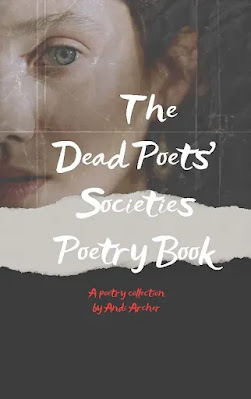🎉 Exciting News! I Wrote Another Book!
It brings me immense joy to share that my poetry book has been published and is now available for you all to read! This isn’t just another collection of poems—it’s a journey through themes that resonate with the challenges we faced during Covid, "la grande épreuve" of our times, crafted with a unique blend of creativity and cutting-edge technology. My book entitled "The Dead Poets' Societies' Poetry Book" is now on Amazon and available wherever Amazon.com is available.
The book was made possible through the incredible capabilities of RALPH, the A.I. system I’ve developed, which not only creates poetry but also holds transformative potential for global literacy. It’s humbling to see this work recognized, having reached many scholars worldwide. It has already received the attention of two Nobel laureates already, with perhaps a third one also to be contacted regarding this book. We are already discussing something else with Prof. Aumann.
I am deeply grateful to everyone who supported me on this journey—my family, friends, and mentors. Special thanks to the team at [@BookLeaf Publishing] for providing a platform to bring this vision to life.
The book is available on Amazon and the BookLeaf Publishing website for just ₹110 (<$2). This accessible pricing allows you to experience firsthand the sophistication and creativity of A.I.-driven poetry.
👉 More information is available here: [ https://lnkd.in/gJqrZCUX]
You can also order your copy via the link posted on the above LinkedIn post.
Here’s to innovation, creativity, and making a difference through the written word. Thank you all for being part of this journey!
Innovation Poetry ArtificialIntelligence RALPH Literacy Publishing ArtificialCreativity
[~]



